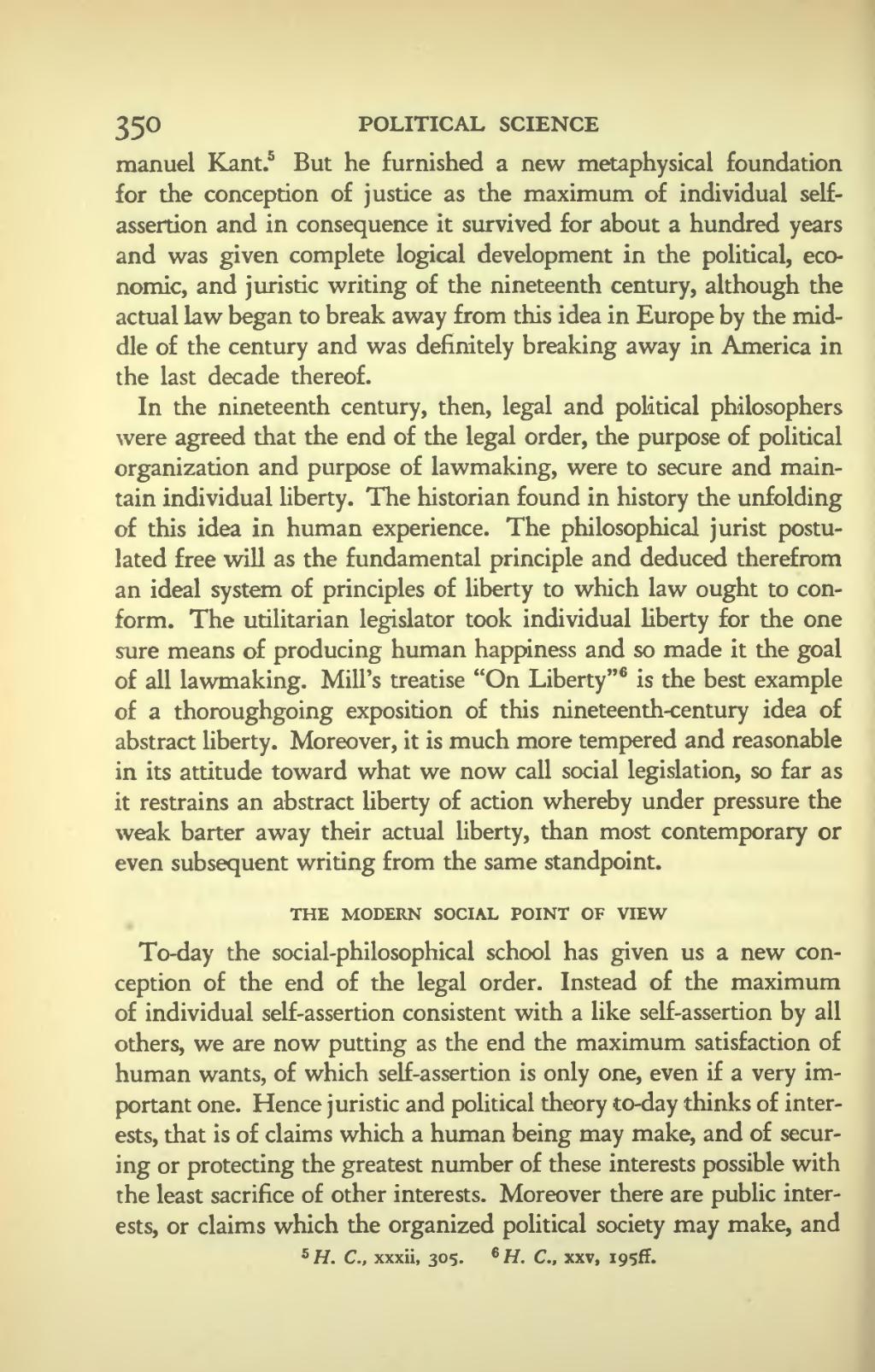manuel Kant.[1] But he furnished a new metaphysical foundation for the conception of justice as the maximum of individual self-assertion and in consequence it survived for about a hundred years and was given complete logical development in the political, economic, and juristic writing of the nineteenth century, although the actual law began to break away from this idea in Europe by the middle of the century and was definitely breaking away in America in the last decade thereof.
In the nineteenth century, then, legal and political philosophers were agreed that the end of the legal order, the purpose of political organization and purpose of lawmaking, were to secure and maintain individual liberty. The historian found in history the unfolding of this idea in human experience. The philosophical jurist postulated free will as the fundamental principle and deduced therefrom an ideal system of principles of liberty to which law ought to conform. The utilitarian legislator took individual liberty for the one sure means of producing human happiness and so made it the goal of all lawmaking. Mill's treatise "On Liberty"[2] is the best example of a thoroughgoing exposition of this nineteenth-century idea of abstract liberty. Moreover, it is much more tempered and reasonable in its attitude toward what we now call social legislation, so far as it restrains an abstract liberty of action whereby under pressure the weak barter away their actual liberty, than most contemporary or even subsequent writing from the same standpoint.
THE MODERN SOCIAL POINT OF VIEW
To-day the social-philosophical school has given us a new conception of the end of the legal order. Instead of the maximum of individual self-assertion consistent with a like self-assertion by all others, we are now putting as the end the maximum satisfaction of human wants, of which self-assertion is only one, even if a very important one. Hence juristic and political theory to-day thinks of interests, that is of claims which a human being may make, and of securing or protecting the greatest number of these interests possible with the least sacrifice of other interests. Moreover there are public interests, or claims which the organized political society may make, and
